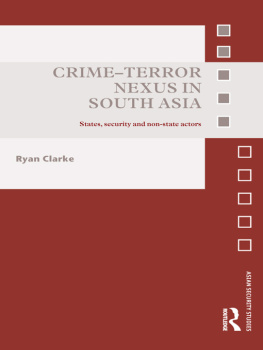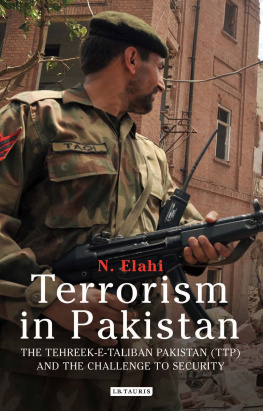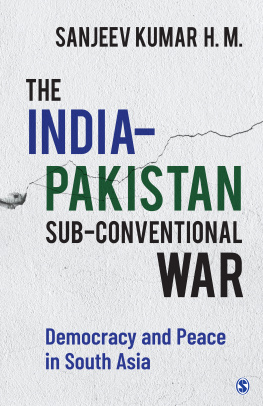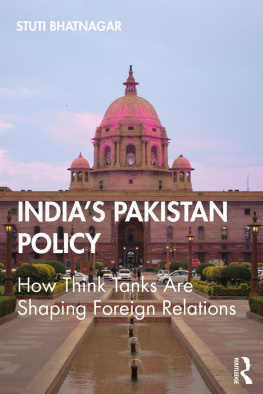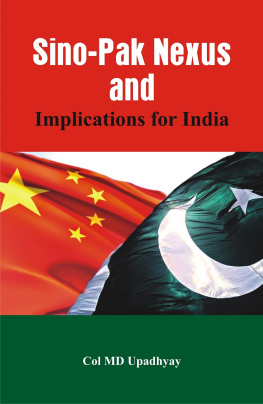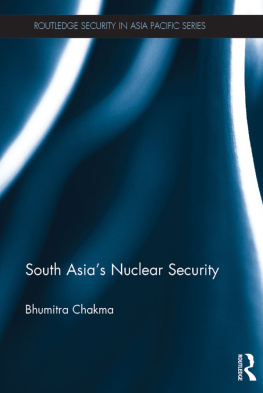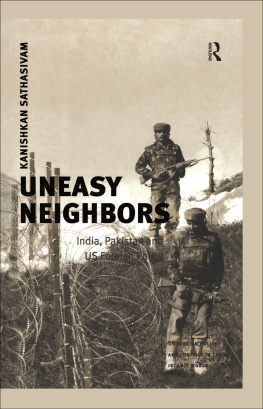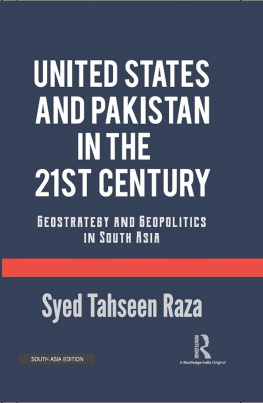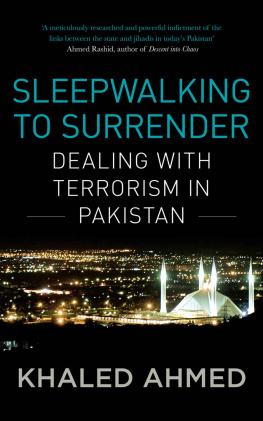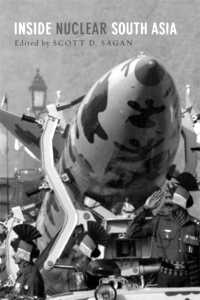Ryan Clarke - Crime-Terror Nexus in South Asia: States, Security and Non-State Actors
Here you can read online Ryan Clarke - Crime-Terror Nexus in South Asia: States, Security and Non-State Actors full text of the book (entire story) in english for free. Download pdf and epub, get meaning, cover and reviews about this ebook. year: 2011, publisher: Routledge, genre: Politics. Description of the work, (preface) as well as reviews are available. Best literature library LitArk.com created for fans of good reading and offers a wide selection of genres:
Romance novel
Science fiction
Adventure
Detective
Science
History
Home and family
Prose
Art
Politics
Computer
Non-fiction
Religion
Business
Children
Humor
Choose a favorite category and find really read worthwhile books. Enjoy immersion in the world of imagination, feel the emotions of the characters or learn something new for yourself, make an fascinating discovery.
- Book:Crime-Terror Nexus in South Asia: States, Security and Non-State Actors
- Author:
- Publisher:Routledge
- Genre:
- Year:2011
- Rating:5 / 5
- Favourites:Add to favourites
- Your mark:
Crime-Terror Nexus in South Asia: States, Security and Non-State Actors: summary, description and annotation
We offer to read an annotation, description, summary or preface (depends on what the author of the book "Crime-Terror Nexus in South Asia: States, Security and Non-State Actors" wrote himself). If you haven't found the necessary information about the book — write in the comments, we will try to find it.
This book examines the crime-terror nexus in South Asia, focusing in particular on the activities of non-state actors that operate out of Pakistan, and challenges the conventional wisdom that the Pakistan Taleban (TTP) and Al-Qaeda are Pakistans most serious security threats.
Much research has focused on the policies of India and Pakistan towards Kashmir. But surprisingly little attention has been paid to several notable Pakistan-based non-state actors who are increasingly operating on their own, and who have the potential to greatly inhibit, if not derail, the peace process there. These groups blur the line between terrorism and organized crime with serious implications for policy in the region. India and Pakistan can engage in confidence-building measures, but if criminal actors such as Lashkar-i-Taiba (LeT) and D-Company cannot effectively be controlled, a lack of trust between both sides will remain.
Although the role of regular military forces is not to be discounted, many of the non-state actors in Indian-Held Kashmir, such as LeT, are not confined by the same restraints as state forces, thus allowing them engage in more violent actions without fear of reprisal. In order for lawmakers, security personnel, and others to develop sound, comprehensive policies, these forces and their potential to undermine political initiatives must be fully appreciated. This book explores the dynamics of the relationship between Pakistan, D-Company, and LeT and how it affects strategic thought, decision-making, and security interests in the region and explains the triangular relationships between states, terrorist groups, and organized criminal syndicates in general, and in India and Pakistan in particular.
This book will of much interest to students of South Asian politics, terrorism, organised crime, war and conflict studies, and Security Studies in general.
Ryan Clarke: author's other books
Who wrote Crime-Terror Nexus in South Asia: States, Security and Non-State Actors? Find out the surname, the name of the author of the book and a list of all author's works by series.

